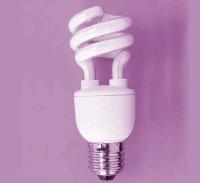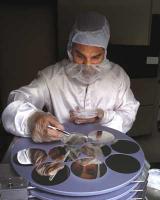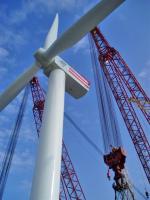 In the effort to get all the sweet renewable energy news that I read collected in one spot I am starting a regular Thursday column. the (drum roll please) Renewable Energy Roundup!!
In the effort to get all the sweet renewable energy news that I read collected in one spot I am starting a regular Thursday column. the (drum roll please) Renewable Energy Roundup!!
I will be going over several stories I think are cool, interesting, worthy of praise, or horrible bad (yes that’s right horrible bad).
So lets begin.
This weeks theme is efficiency. Getting more done with less.
Read
From here
Boeing Spectrolab Terrestrial Solar Cell Surpasses 40 Percent Efficiency 
Boeing [NYSE: BA] today announced that Spectrolab, Inc., a wholly-owned subsidiary, has achieved a new world record in terrestrial concentrator solar cell efficiency. Using concentrated sunlight, Spectrolab demonstrated the ability of a photovoltaic cell to convert 40.7 percent of the sun’s energy into electricity. The U.S. Department of Energy’s National Renewable Energy Laboratory (NREL) in Golden, Colo., verified the milestone.
“This solar cell performance is the highest efficiency level any photovoltaic device has ever achieved,†said Dr. David Lillington, president of Spectrolab. “The terrestrial cell we have developed uses the same technology base as our space-based cells. So, once qualified, they can be manufactured in very high volumes with minimal impact to production flow.â€
High efficiency multijunction cells have a significant advantage over conventional silicon cells in concentrator systems because fewer solar cells are required to achieve the same power output. This technology will continue to dramatically reduce the cost of generating electricity from solar energy as well as the cost of materials used in high-power space satellites and terrestrial applications.“These results are particularly encouraging since they were achieved using a new class of metamorphic semiconductor materials, allowing much greater freedom in multijunction cell design for optimal conversion of the solar spectrum,†said Dr. Richard R. King, principal investigator of the high efficiency solar cell research and development effort. “The excellent performance of these materials hints at still higher efficiency in future solar cells.â€
This is pretty amazing. With efficiencies of this magnitude solar really starts to take off. Much as new turbine designs revolutionized the wind industry and made it possible to built profitable wind farms. High efficiency solar cells with concentrator systems will allow solar to achieve a similar boom. With cheap high efficiency solar cells everyone will be able to take a few square meters of the room and provide 1/3 or more(with improved efficiency) of the household energy needs.
From here
Expect 1,500 MW from Offshore Wind Energy in Germany 
According to the CEO at REpower Systems AG, Professor Fritz Vahrenholt, it is realistic to expect offshore wind farms with an output of 1,500 megawatts (MW) in Germany by the end of 2011.
Vahrenholt also announced a short-term decision on Bremerhaven as the site for the serial production of the offshore turbine REpower 5M, to start as early as 2007.
During the National Maritime Conference in Hamburg, Vahrenholt welcomed Germany’s resolution to adjust the infrastructure law so that grid-connection costs are borne by the grid operators.
The guys at REpower don’t mess around. There 5m wind turbine (that’s right one turbine 5 megawatts) is a behemoth of a turbine. You get even a few of these bad boys in one spot and you have yourself a nice output from a few towers.
From here
Turning Switchgrass into Low Cost Ethanol 
According to Albert Kausch, a University of Rhode Island (URI) plant geneticist on the cutting edge of switchgrass research, native switchgrass grown commercially today could produce ethanol for approximately $2.70 per gallon — but by genetically improving a number of plant traits the production price could get as low as $1 per gallon.
“There are several impediments to the process of converting switchgrass to ethanol that would make unaltered switchgrass commercially unprofitable. We are working with professors at Brown University, for instance, to create better enzymes that will degrade cellulose into sugars for a more efficient conversion to ethanol,” said Kausch.
While I think that bio-fuels will never replace gasoline (I am hoping electric cars do that), bio-fuels like ethanol will be an important transition fuel. We will need things like biodiesel and ethanol to take oils place while we develop better hybrids and plug-in hybrids. The people at URI are doing just that.